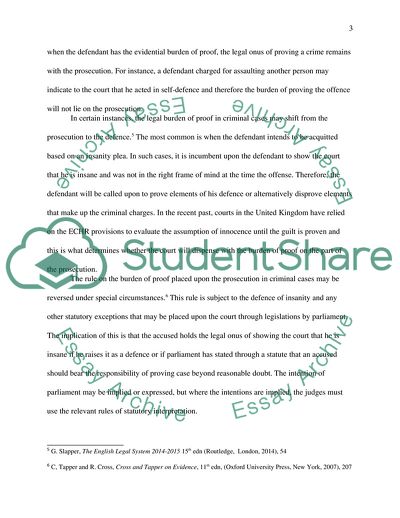Cite this document
(Reversal of Legal Burden of Proof in Criminal Cases Essay, n.d.)
Reversal of Legal Burden of Proof in Criminal Cases Essay. https://studentshare.org/law/1881914-evidence-law
Reversal of Legal Burden of Proof in Criminal Cases Essay. https://studentshare.org/law/1881914-evidence-law
(Reversal of Legal Burden of Proof in Criminal Cases Essay)
Reversal of Legal Burden of Proof in Criminal Cases Essay. https://studentshare.org/law/1881914-evidence-law.
Reversal of Legal Burden of Proof in Criminal Cases Essay. https://studentshare.org/law/1881914-evidence-law.
“Reversal of Legal Burden of Proof in Criminal Cases Essay”. https://studentshare.org/law/1881914-evidence-law.


